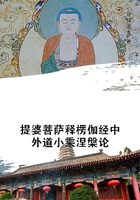In his personal life Nicholas V. (1447-55) was not unworthy of his exalted position, but the necessity of repairing the damage that had been done by the unruly assembly at Basle, which arrogated to itself the authority of an independent General Council, the removal of the last obstacle to the Turkish invasion of Europe in the fall of Constantinople, and the importance of securing for Rome a pre-eminent position in the great classical revival, engaged all his energies to the exclusion of necessary reforms. Calixtus III. (1455-58) was too old to do much, yet, notwithstanding his advancing years and the indifference of the European rulers, he threw himself into the struggle against the Turks, aiding and encouraging Hungary and Albania in their resistance, and it is due largely to his efforts that the victorious advance of Mahomet II. was checked by the overthrow of his forces at Belgrade (1456). Pius II.[1] (1458-64), though in his youth not the most exemplary of the Humanist school, devoted himself with earnestness and zeal to the duties of his sacred office. He published a Bull retracting all the attacks which he had made against the Papacy in his capacity as secretary to the /Concilabulum/ at Basle. He set himself to study the Scriptures and the early Fathers in place of the Pagan classics, and he showed his approbation of the Christian Humanists. But he was unable to undertake the work of reform. In view of the danger that still threatened Europe he convoked an assembly of the princes at Mantua to organise a crusade against the Turks, but they turned a deaf ear to his appeals, and, at last weary of their refusals and indifference, he determined to place himself at the head of the Christian forces for the defence of Europe and Christianity. He reached Ancona broken down in spirits and bodily health, and died before anything effective could be done. Paul II. (1464-71), who succeeded, made some efforts to purify the Roman Court. He suppressed promptly the College of Abbreviators who were noted for their greed for gold and their zeal for Paganism, and closed the Roman Academy. On account of his severity in dealing with the half Christian Humanists of the Curia he has been attacked with savage bitterness by Platina, one of the dismissed officials, in his /Lives of the Popes/,[2] but nobody is likely to be deceived by scurrilous libels, the motives of which are only too apparent. The worst that can be said against Paul II. is that he was too fond of appointing his relatives to high positions in the Church; but in mitigation of that it is well to remember that his reforms had raised up so many enemies against him in Rome, and disaffection was so rife amongst even the highest officials of his court, that he may have deemed it prudent to have relatives around him on whom he could rely.
Sixtus IV. (1471-84) was the first of the political Popes, Leo X.
being the last. They are so called on account of the excessive interest they displayed in Italian politics of the period, to the neglect of the higher interests with which they were entrusted. Most of them, with the exception of Alexander VI., were not positively unworthy men, but they were too much concerned with secular pursuits to undertake a reform of the gross abuses which flourished at the very gates of their palace. The papal court was no worse and very little better than the courts of contemporary rulers, and the greed for money, which was the predominant weakness of the curial officials, alienated the sympathy of all foreigners, both lay and cleric.
Julius II. (1503-13) did, indeed, undertake the difficult task of restoring the States of the Church that had been parcelled out into petty kingdoms by his predecessors, but his policy soon brought him into conflict with Louis XII. of France. Louis demanded that a General Council should be convoked, not so much out of zeal for reform as from a desire to embarrass the Pope, and when Julius II. refused to comply with his request the king induced some of the rebellious cardinals to issue invitations for a council to meet at Pisa (Sept. 1511). Most of the bishops who met at Pisa at the appointed time were from France.
The Emperor Maximilian held aloof, and the people of Pisa regarded the conventicle with no friendly feelings. The sessions were transferred from Pisa to Milan, and finally to Lyons. As a set off to this Julius II. convoked a council to meet at Rome, the fifth Lateran Council (May 1512), for the threefold purpose of healing the French schism, of proscribing certain doctrinal errors, and of undertaking the work of reform. The earlier sessions were taken up almost entirely with the schism, and before the work of reform was begun Julius II. passed away.
He was succeeded by the young and learned John de' Medici, son of Lorenzo the Magnificent of Florence, who took the name of Leo X.
(1513-21). Like his father, the new Pope was a generous patron of art and literature, and bestowed upon his literary friends, some of whom were exceedingly unworthy, the highest dignities in the Church.
Humanism was triumphant at the Papal Court, but, unfortunately, religion was neglected. Though in his personal life Leo X. could not be described as a deeply religious man, yet he was mindful of his vows of celibacy, attentive to the recitation of the divine, office, abstemious, and observant of the fasts of the Church. As a secular ruler he would have stood incomparably higher than any of the contemporary sovereigns of Europe, but he was out of place considerably as the head of a great religious organisation.
Worldliness and indifference to the dangers that threatened the Church are the most serious charges that can be made against him, but especially in the circumstances of the time, when the Holy See should have set itself to combat the vicious tendencies of society, these faults were serious enough.















